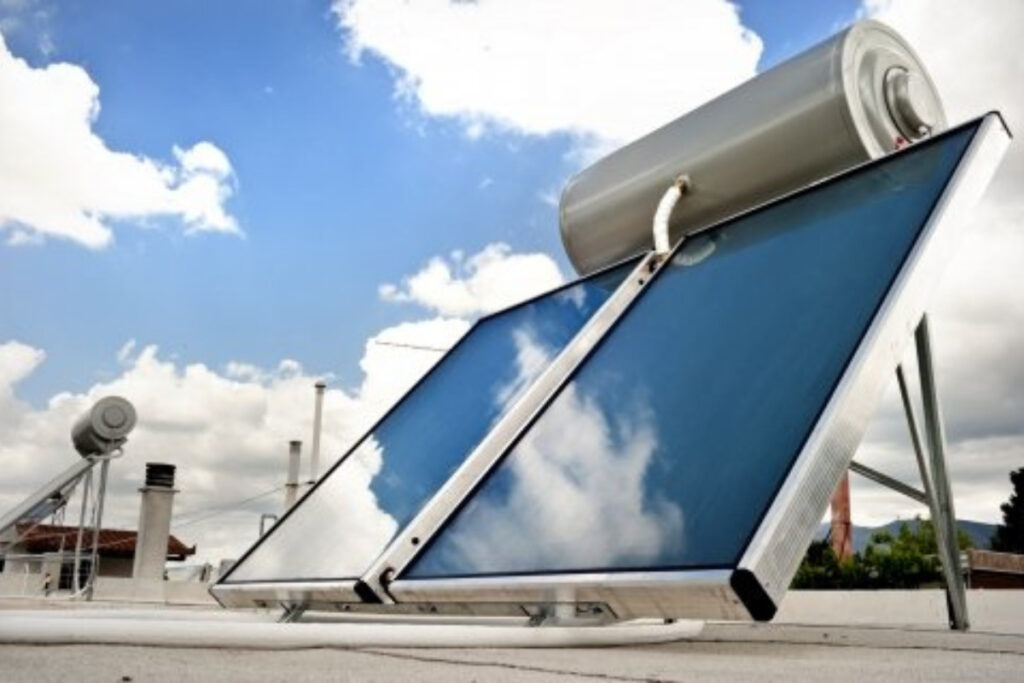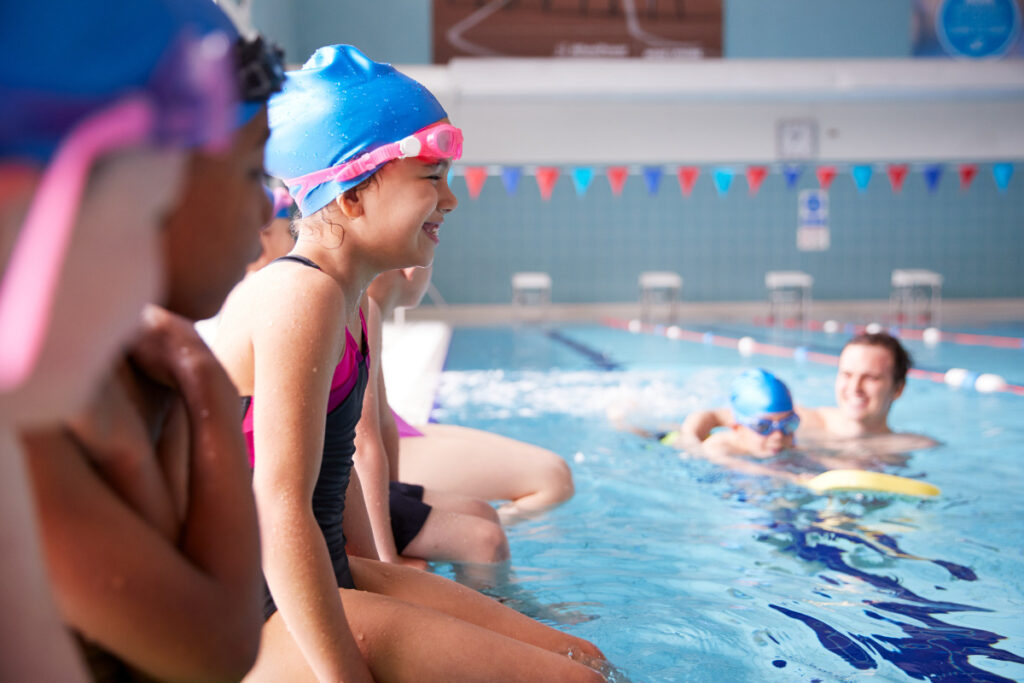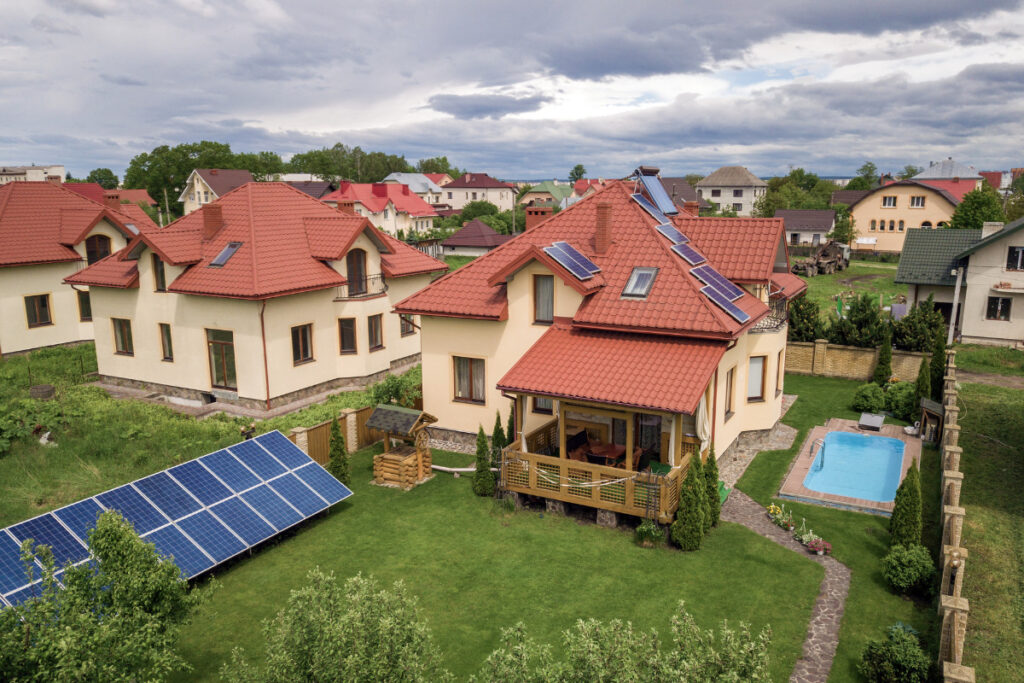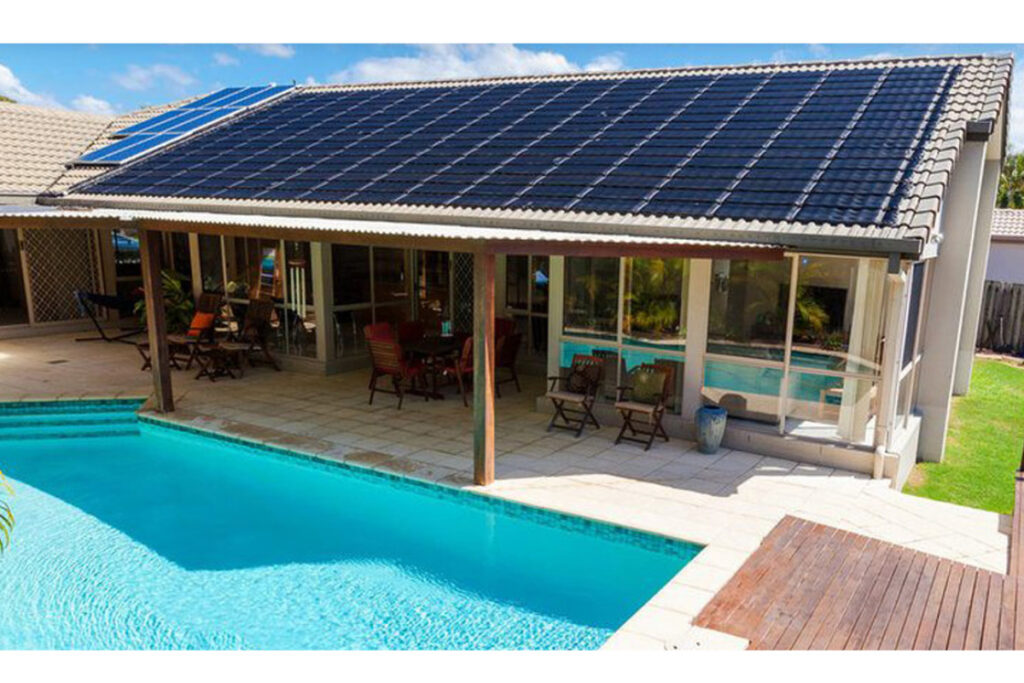Introduction
Dive into the world of pool solar water heating with our comprehensive guide! Embrace eco-friendly living and enjoy a longer swimming season by harnessing the power of renewable energy. You will reduce your carbon footprint and save money on heating costs while enhancing your property’s value. Ready to make a splash? Keep reading to learn everything you need to know about selecting, installing, and maintaining pool solar water heating systems for maximum efficiency and enjoyment.
Understanding Pool Solar Water Heating Systems
Pool solar water heating systems work by pumping pool water through a series of tubes or panels, which is heated directly by sunlight and then returned to the pool.
How Does Pool Solar Water Heating Work?
Pool solar water heating systems harness the sun’s energy to warm your swimming pool, providing an eco-friendly and cost-effective solution for maintaining a comfortable water temperature year-round. The process begins with the pool’s circulation pump, which moves water through filtration equipment before sending it to a solar collector. This essential system component is typically an array of tubes or panels installed on a nearby rooftop or ground structure where they can absorb sunlight and convert it into heat.
Solar energy presents a sustainable way to decrease environmental impact and minimize long-term costs. As water flows through these collectors, it gains thermal energy from direct exposure to the sun’s rays. Heated water returns to the pool directly, maintaining optimal temperatures without traditional heating methods. Modular design allows for easy expansion.
Types Of Solar Water Heating Systems For Pools
Several types of solar water heating systems are available for swimming pools, each designed to cater to different needs and preferences. Below is a brief overview of the main options:
- Glazed Solar Collector Systems: These systems use glazed panels that trap sunlight and transfer heat to the pool water. They are highly efficient and ideal for cold climates because they retain heat.
- Unglazed Solar Collector Systems: Made from durable materials such as rubber or plastic, unglazed collectors don’t have a glass covering, making them more affordable than glazed systems. While they may be less efficient in colder regions, they still provide sufficient heating for swimming pools in milder climates.
- Evacuated Tube Collector Systems: This type consists of multiple tubes that absorb sunlight and transform it into heat, which is then transferred to pool water through a series of pipes. While more expensive upfront, evacuated tube collectors offer higher efficiency levels than other solar heaters.
- Floating Solar Pool Heaters: By floating on the pool’s surface, these devices absorb sunlight and transfer heat directly into the water beneath them. Portable and easy to install, floating heaters are an effective solution for above-ground pools or smaller inground pools.
- DIY Solar Pool Heating Systems: For those interested in creating their own solar heating system with minimal upfront costs, DIY kits offer customizable solutions tailored to individual needs.
By understanding the various types of solar water heating systems available for pools, homeowners can decide when to select the right option based on factors such as climate control, energy efficiency goals, and cost savings potential.

Benefits Of Pool Solar Water Heating
Solar pool heaters offer many benefits, including lower energy costs, longer swim seasons, improved comfort and safety, and higher property value. By reading on, discover how these sustainable solutions can benefit your pool in more detail.
Reduced Energy Costs
One of the most significant benefits of installing a solar pool heating system is the potential for reduced energy costs. Traditional pool heaters rely on natural gas or electricity to generate heat, which can contribute to high utility bills. In contrast, solar heaters harness free and abundant sunlight to warm your pool water, eliminating the need for a traditional heater during peak swimming months. As a result, homeowners who invest in solar technology often experience substantial savings on their energy bills.
Savings from a solar pool heater depend on climate, panel size and orientation, and daily sun exposure. Sunnier areas like California and Florida may yield greater savings than cloudier regions like Washington or Oregon. Using solar energy promotes eco-friendly living by reducing reliance on non-renewable sources. This also conserves financial resources.
Longer Swimming Season
One of the most significant benefits of using a solar pool water heating system is that it can extend your swimming season. With a solar pool heater, you no longer have to limit your swim time to just the summer months. Solar heaters use renewable energy from the sun to warm up the water in your pool, allowing you to enjoy it for more extended periods throughout the year.
A solar heater can also save costs and prolong your swimming season. Traditional gas or electric heaters require electricity or natural gas, which can be expensive over time. In contrast, harnessing power from the sun incurs zero ongoing costs and helps reduce carbon footprint by diminishing reliance on fossil fuels.
In summary, installing a solar pool water heating system has many benefits that make sense both environmentally and economically. By extending your swimming season with renewable energy sources and reducing energy bills significantly over time, this sustainable option is an easy decision for property owners looking after their pools long-term while preserving environmental harmony around their residential space.#
Environmentally-Friendly
Solar pool heaters are a sustainable and environmentally-friendly option for heating your swimming pool. Unlike gas or electric heaters, which rely on non-renewable fossil fuels, solar heaters use the sun’s power to warm your water. This reduces your carbon footprint and helps protect the environment.
Solar panels offer a low-maintenance and long-lasting solution that can produce free heat for many years. With proper sizing and installation, homeowners can reduce reliance on traditional energy sources and save money on utility bills. Choosing a solar pool heater can also save significant energy over time.
By selecting renewable options like solar pool heating, homeowners can promote eco-friendly living while enjoying all-season swimming comfort. Using clean energy sources effectively lessens our impact on the planet and preserves it for future generations.
Improved Comfort And Safety
When it comes to swimming, safety should always be a top priority. Solar pool heating systems can help improve your swimming experience’s comfort and safety. By using solar energy to heat your pool water, you can avoid the potential dangers of relying on electric or gas-powered heaters.
Solar pool heaters provide a more consistent and even heat distribution than other heaters, which means you can enjoy warmer water temperatures throughout your entire pool rather than just in some areas. This helps make swimming more comfortable by eliminating cold spots that often occur with traditional heating methods. Additionally, because solar pool heaters are powered by renewable sources like sunlight, they have no emissions or fumes that could irritate swimmers’ eyes or lungs.
Another benefit of using solar pool heating is improved safety. Traditional heaters can pose risks such as fire hazards or carbon monoxide poisoning if not installed or maintained properly. Solar pool heaters eliminate these risks since they don’t rely on combustible fuels for power. Plus, without any cords or plugs necessary for operation, there’s less chance of electrical shock when compared to traditional electric-powered systems.
Overall, opting for a solar water heating system provides many benefits beyond just reducing costs and extending the swim season – it also promotes comfort and increased safety in your backyard oasis!
Increased Property Value
Installing a solar pool water heating system can offer a range of benefits beyond cost savings and environmental advantages. Green features like solar pool heaters increase home to appeal to buyers. According to Lawrence Berkeley National Laboratory, homebuyers are willing to pay an average premium of $15k for homes with PV systems (comparable to solar pool heaters) over those without them. Solar pool heaters add value to properties and enhance outdoor living spaces. Installing a solar pool water heating system is a practical, responsible, and sound financial decision.
Solar pool water heating systems may cost more upfront but could significantly pay off through higher resale values. Solar pool heaters make properties stand out and offer longer swimming seasons. This means homeowners can use their pools for exercise routines or social gatherings throughout most months of the year.
Solar pool water heating systems have benefits beyond cost savings and seasonal extension. They increase property value and attract environmentally-conscious buyers. Optimizing outdoor living spaces’ aesthetics for increased enjoyment while lounging or hosting guests is possible all year.
Installation, Maintenance, And Safety Tips
Proper installation, maintenance, and safety precautions are crucial for the efficiency and longevity of your solar pool heating system. Keep reading to learn how to maintain your system, ensure safety during installation, and maximize its benefits for years to come.
Location And Orientation Of Solar Collectors
The location and orientation of solar collectors are crucial factors in the efficiency of a solar pool heating system. Here are some guidelines to consider:
- South-facing: Solar collectors should face south to maximize exposure to sunlight.
- Unobstructed: Ensure that the collectors are free from any shading or obstruction that can reduce the amount of sunlight they receive.
- Angle: The angle of the collectors should be set between 30-45 degrees for optimum performance.
- Roof mounting: Installing solar collectors on rooftops is a common practice for residential pools. However, ensure that the roof is structurally sound and can support the weight of the added equipment.
- Ground-mounted: Ground-mounted collectors can also be used if a rooftop installation is not feasible. They should be installed at an angle to maximize sun exposure and prevent shading.
- Distance from pump and filter: Place your solar collectors as close to your pool’s pump and filter system as possible to minimize heat loss during transport.
- Seasonal adjustment: Depending on your location and weather patterns, it may be necessary to adjust the orientation of your solar collectors seasonally for optimal performance.
Following these guidelines ensures that your solar pool heating system functions efficiently throughout the year while providing considerable energy cost savings and eco-friendly benefits.
Sizing And Design Of The System
There are several factors to consider when it comes to sizing and designing a solar pool heating system. These may include the size of your pool, its location, and the desired temperature increase. Other considerations could be how much sun exposure your site gets and the type of collector you plan to use.
Selecting an appropriately sized solar heating system for your swimming pool is important. It may not function optimally or efficiently if it is too large or small for your needs. Generally speaking, a good rule of thumb when sizing a solar swimming pool heater is to collect enough energy each day, equal to 50% -100% of the water in the pool.
The design should allow for easy maintenance access to valves and filters. Choose weather-resistant components. Proper installation reduces costs and promotes eco-friendliness.
Regular Cleaning And Upkeep
Regular cleaning and maintenance of your pool solar water heating system are essential to keep it running smoothly and efficiently. Here are some tips for keeping your system in good condition:
- Check the solar collectors for debris: Leaves, dirt, and other debris can accumulate on the solar collectors, blocking the sunlight and reducing efficiency. Clear away any debris regularly to keep the collectors functioning at their best.
- Inspect the pipes and connections: Over time, lines and connections can become corroded or damaged, leading to leaks or inefficiencies in the system. Regularly inspect all parts of your solar water heating system and replace damaged components.
- Check the pump and filtration system: The pump plays a key role in circulating water through the solar collectors and back into the pool, so it’s important to ensure it works properly. Regularly check that the pump is running smoothly and the filters are clean.
- Winterize the system: If you live in an area that experiences freezing temperatures during winter, it’s important to properly winterize your solar water heating system to prevent damage from frozen pipes or components. Follow manufacturer recommendations for winterizing your specific system.
By following these maintenance guidelines, you can ensure that your pool solar water heating system operates at peak performance levels throughout its lifespan, saving you energy costs while extending your swimming season.
Winterizing The System
Winterizing your solar pool heating system is essential to ensure it lasts long and functions properly. Follow these steps to prepare the system for winter:
- Turn off the system: Before winter sets in, turn off the solar pump, filter, and controller.
- Drain water from the panels: Remove any debris and drain any remaining water using a compressor or a shop vac.
- Remove hoses: Disconnect all hoses from the solar collectors and pool equipment and plug any openings to prevent water from entering.
- Store equipment indoors: Store all the parts in a dry place indoors to protect them from freezing temperatures.
- Check for leaks: Inspect your system for leaks or damage before storing it away.
By following these simple steps, you can extend the lifespan of your solar pool heating system and ensure its efficient operation when spring arrives.
Safety Precautions During Installation And Maintenance
When installing or performing maintenance on your pool solar water heating system, it is essential to prioritize safety. Here are some safety precautions you should keep in mind:
- Turn off the power supply before starting any work on the system to avoid electric shock.
- Wear protective clothing and equipment (e.g., gloves and goggles) when handling chemicals or climbing ladders to access the solar collectors.
- Secure all tools and equipment to prevent them from falling into the pool or onto someone below.
- Stay alert for potential hazards, such as sharp edges on metal components or tripping hazards on uneven ground.
- Follow manufacturer instructions carefully when assembling or disassembling a solar collector or related parts.
- If you are not confident in handling a particular task safely, seek professional assistance rather than risking injury or damage to your equipment.
Taking these precautions seriously reduces the risk of accidents and ensures that your pool solar water heating system has operated smoothly for years.

Sizing And Selecting A Solar Pool Heating System
To ensure optimal performance and cost savings, sizing and selecting a solar pool heating system involves carefully considering factors such as pool size, desired temperature increase, and site evaluation. Read on to learn more about choosing the right solar pool heater.
Factors To Consider
When selecting a solar pool heating system, several factors must be considered. These include:
- Pool Size: The size of your pool is an essential factor when selecting a solar pool heating system, as it determines the number of panels or collectors required.
- Site Evaluation: The orientation and placement of the solar collectors are crucial in determining the efficiency and effectiveness of the system. Factors such as shading, wind exposure, and location can affect performance.
- Climate: Weather patterns and conditions in your area can also contribute to your decision-making process. Solar pool heating may be more beneficial if you live in a room with many sunny days or mild temperatures all year round.
- Energy Efficiency: Solar pool heaters can vary in energy efficiency, so selecting a model that will provide maximum efficiency while minimizing energy use is essential.
- Cost: The overall installation and maintenance cost is another critical factor to consider when selecting a solar pool heating system. While initial costs may be higher than traditional gas heaters or electric pumps, the long-term savings on energy bills could offset the cost.
By considering these factors and evaluating your options carefully, you can select the right solar pool heating system that suits your needs and budget.
Sizing Guidelines
To ensure that your solar pool heater works efficiently, it’s essential to size it correctly. Here are some sizing guidelines to help you choose the right solar pool heating system:
- Determine your pool’s surface area in square feet.
- Decide on the desired temperature increase for your pool.
- Consider the climate of your location and the typical air temperature during the swimming season.
- Calculate the BTU (British Thermal Unit) requirements based on the factors above to select the appropriate size of solar collector panels needed.
- Choose a pool pump compatible with your solar heating system.
Correct sizing of your solar pool heating system will help you maximize its efficiency, lengthen your swimming season and save you money in energy costs over time.

Types Of Solar Pool Heating Systems
There are two main solar pool heating system types: glazed and unglazed.
- Glazed Solar Pool Heating Systems
- a. Features a glass-like cover that traps heat like a greenhouse.
- b. Offers better efficiency in colder climates but costs more than unglazed systems.
- c. Typically made of durable materials such as copper or aluminum.
- Unglazed Solar Pool Heating Systems
- a. Does not have a glass-like cover, making it less expensive than glazed systems.
- b. Best suited for warmer climates where freezing is not an issue.
- c. Typically made of UV-resistant rubber or plastic.
It’s important to consider your climate and budget when choosing between these solar pool heating systems.
Conclusion
In conclusion, opting for solar pool water heating is an innovative and eco-friendly choice that can save you money in the long run. With reduced energy costs and longer swimming seasons, your pool will become a haven of comfort all year round.
When selecting a solar pool heater, consider factors such as sizing and site evaluation to ensure optimal efficiency. Regular maintenance and safety precautions are vital to ensuring the longevity of your system.
Trust us at DroneQuote – we provide a comprehensive guide for evaluating solar thermal pool systems that can help you make an informed decision. So enjoy warm swimming sessions while reducing your carbon footprint with renewable energy!

FAQs:
- What is solar pool water heating, and how does it work?
Pool solar water heating uses the sun’s energy to heat the water in your pool through a series of tubes or panels on or near your roof. The warmed water is circulated back into the pool, raising its overall temperature.
- How much will a pool solar water heating system cost me?
Costs can vary considerably depending on numerous factors, such as the size of your pool, location, and type of solar panel used for installation. Still, you can expect to pay anywhere between $3,000-$7,500 upfront; over time, savings from reduced electricity bills should help offset these initial costs.
- Is it necessary to have a professional installation for a pool solar water heating system?
Yes, we highly recommend having professional installers do this for safety reasons and ensure proper sizing, alignment & connection so that complete functionality within required parameters are met without risk of any potential issues occurring due to improper setup or faulty equipment leading to potentially dangerous situations during operation.
- Once installed, are there any maintenance requirements for a pool solar water heating system?
Yes! Debris can accumulate around solar panels, hampering their function and reducing efficiency. Regular cleaning with tap water prevents damage to sensitive materials like rubber-based seals. This avoids performance issues and excessive wear and tear, which leads to frequent repairs.

